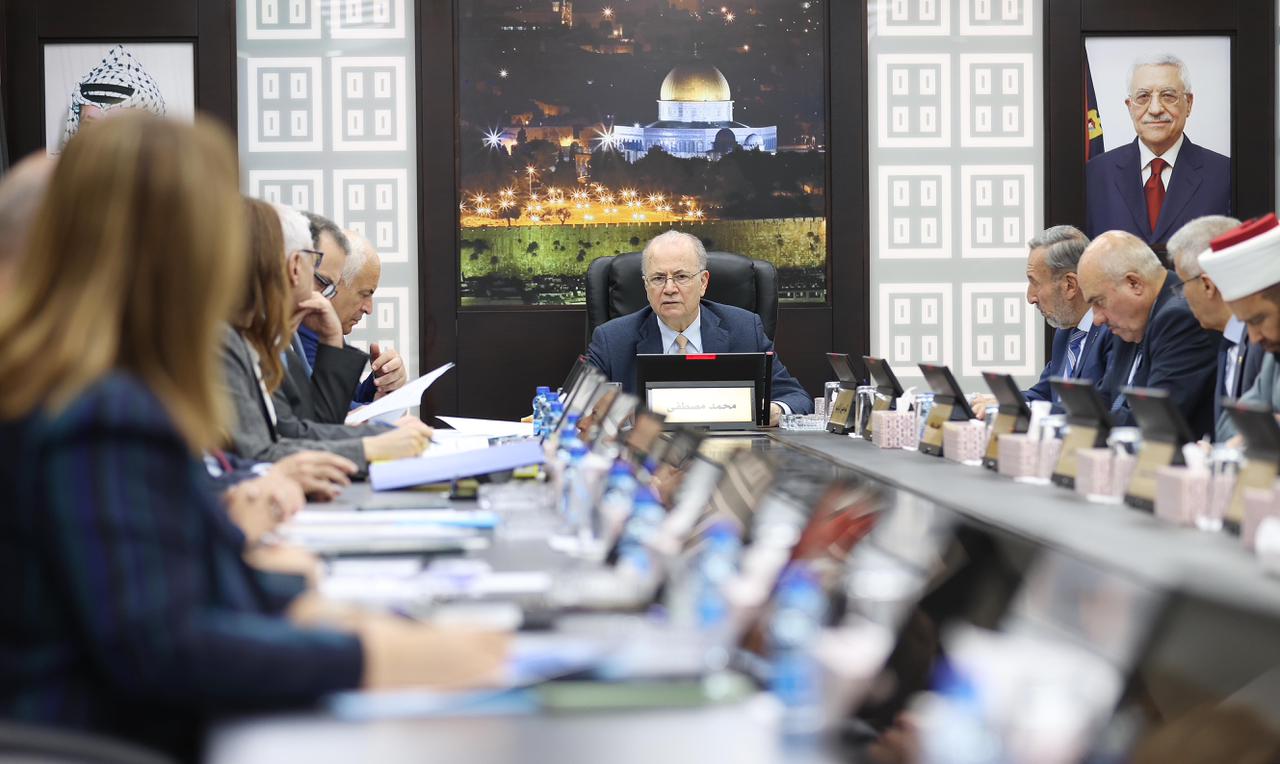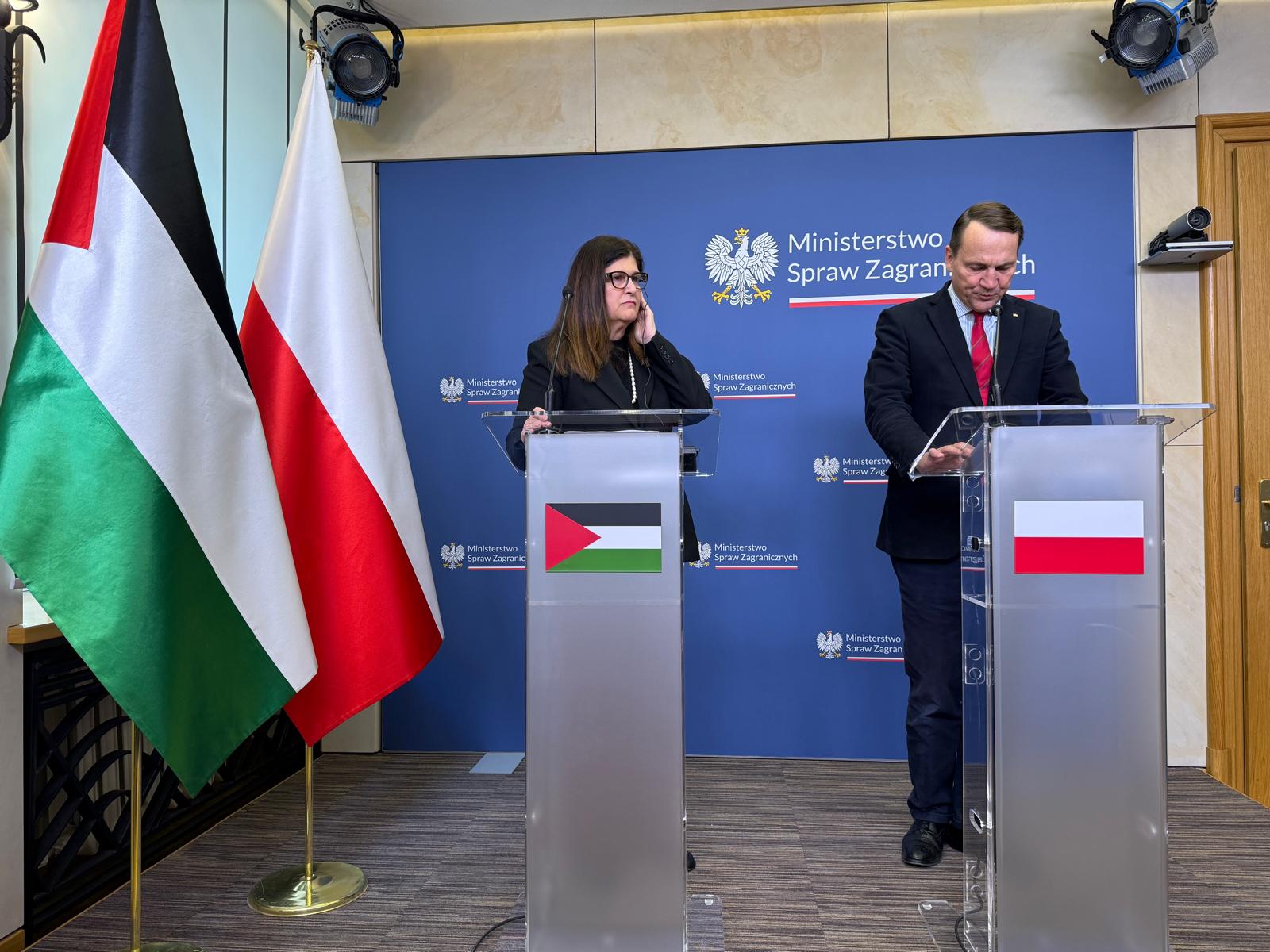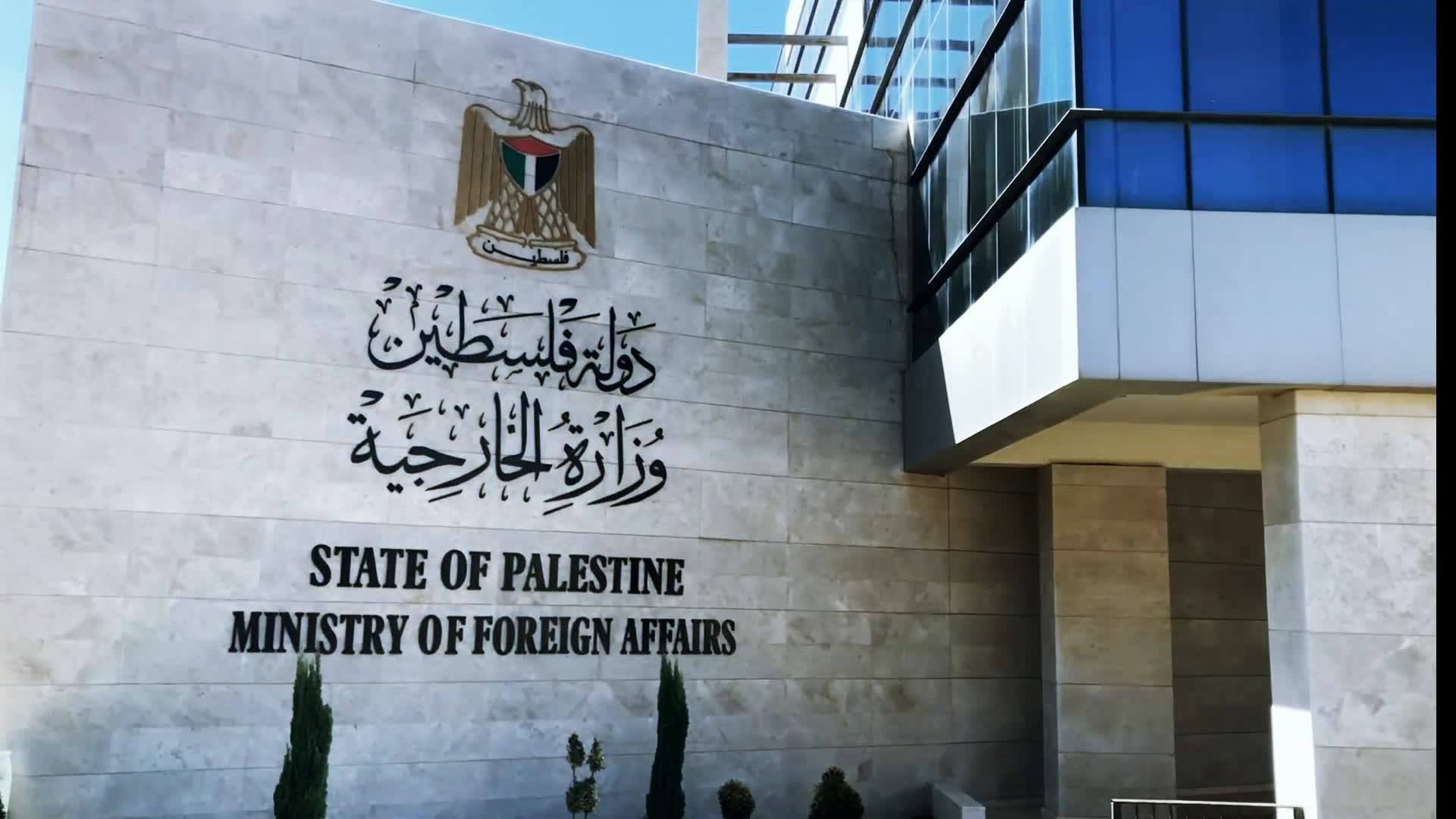RAMALLAH, November 17, 2025 (WAFA) - Prime Minister Mohammad Mustafa opened the weekly Cabinet session on Monday in Ramallah with a briefing on the political efforts led by President Mahmoud Abbas to mobilize international support for the inalienable rights of the Palestinian people.
During the session, the Cabinet called on the international community to take immediate action to stop Israeli settlers’ terrorism in the West Bank, warning of the grave danger posed by organized settler militias targeting Palestinian villages and towns. These militias continue to carry out systematic crimes against civilians—including physical attacks, arson, uprooting of trees, and terrorizing the Palestinian people—without any deterrence or accountability from the Israeli government, which provides them with protection and support in flagrant violation of international law.
The Cabinet also warned Gaza Palestinian citizens in Gaza about “suspicious” entities orchestrating forced displacement and population transfers under humanitarian pretexts, exploiting the extreme conditions in the Strip and putting many at serious risk. It stressed that the Palestinian Government remains the sole authority mandated to coordinate citizens’ travel in a manner that ensures their safety and protects their rights.
As part of the Government’s Energy Security Initiative, the Cabinet further approved the formation of a steering committee to oversee the implementation of the “Shamsi Falasteen” program, which includes installing 1 MW solar-power systems with battery storage for 22 local authorities in the first phase, out of 45 that meet the criteria. The program will be implemented through an interest-free revolving loan fund and partial grants totaling up to USD 20 million, in partnership with UNDP.
While within the broader Palestinian healthcare reform program—implemented in cooperation with the World Bank—the Cabinet approved a contractual framework with hospitals receiving medical referrals. The framework regulates the relationship between the Ministry of Health and national hospitals, particularly regarding referral mechanisms, payments, and pricing. It also enables the Government to provide payments to national hospitals to cover as much of the treatment costs as possible within the allocated budget.
Continuing the plan to regularize local authorities’ debts under the “net lending” framework, the Cabinet approved the consolidation of water and electricity debts for 28 local authorities, in cooperation with the Ministries of Finance and Local Government, and the Water and Energy Authorities.
The Cabinet further approved the procurement of equipment for the Palestinian Electricity Transmission Company to monitor load performance, reducing power outages caused by overloads or extreme heat.
To expand the Water Authority’s interventions in Gaza and strengthen maintenance of the supply network, the Cabinet approved the rental of a new office for the Water Authority in Deir al-Balah to enhance its services and meet citizens’ needs.
T.R.













